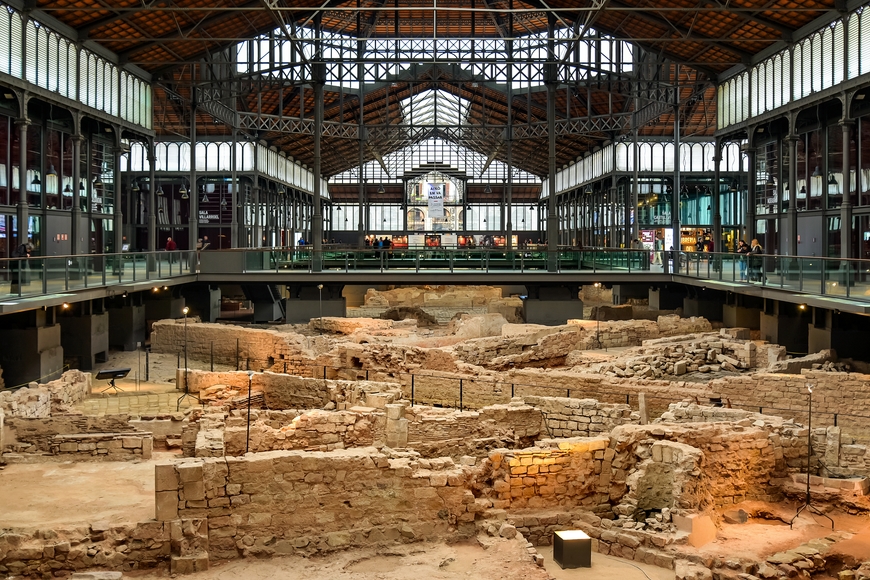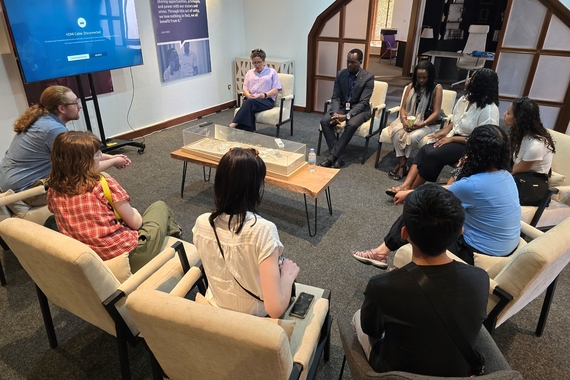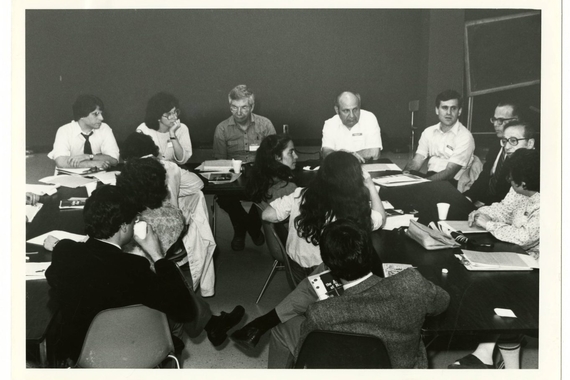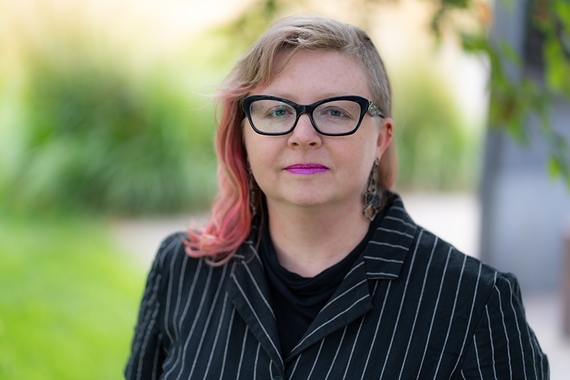Applications Open for CHGS Summer Graduate Institute
Summer Institute – Emerging Scholar Fellowship Program
Researching Mass Violence and Human Rights:
Ethical, Personal, and Methodological Challenges
July 16-20, 2023
Location:
Born Centre de Cultura i Memòria, Barcelona (Pictured above)
Facilitators:
Francisco Ferrándiz (CSIC, Spain) and Alejandro Baer (U. Minnesota / UNED)
Organizers:
- University of Minnesota Center for Holocaust and Genocide Studies
- Department of Anthropology, ILLA, CCHS, Spanish Research Council (CSIC)
- Born Centre de Cultura i Memòria
- Centro de Estudios de Memoria y Derechos Humanos, UNED
- Proyecto NECROPOL (PID2019-104418RB-I00), Universitat de Barcelona
Application deadline: Friday, March 17th, 2023
We look forward to assembling an interdisciplinary and transnational group of Ph.D. candidates and early career scholars interested in sharing theoretical frameworks, ethical dilemmas, methodological challenges, field experiences, and good practices from their work in this highly sensitive domain of intellectual inquiry and empirical research.
We invite proposal submissions from all disciplines in the humanities and the social sciences that engage with topics including:
- Positionality, reflexivity, and implication in research on mass violence. How do we as researchers navigate or contribute to the complex politics of representation in the contexts we study? What is our resulting role and responsibility as researchers? How do we acknowledge power dynamics and avoid the risks of academic exploitation?
- Fieldwork logistics and context-sensitive research, including hiring, working and navigating challenges with research assistants.
- Ensuring participants' safety. Trauma-informed interviewing, “deep listening” (Culbertson), and sensitive data management.
- Coping with secondary trauma or personal mental health impacts (also burnout, “compassion fatigue,”) from exposure to violence and/or its effects.
- Modalities of engaged research and public scholarship. How can research outputs be used more effectively with communities, NGOs, institutions, and policymakers?
- The role of language(s) when conducting fieldwork and compiling and presenting data.
- Navigating shifts in memory politics surrounding genocide and mass violence; in public memorialization and exhibitions; in written texts; in film and media.
- New technologies in research on mass violence and human rights. Practical and ethical challenges concerning online fieldwork or digital platforms (including digital archives)
The Summer institute´s format will combine workshop-style participant presentations, guest lectures, and interactive/experimental group activities. Participants will meet for an online orientation session two weeks before the start of the program.
Fellowship Information & Application Materials
The Summer Institute is intended for advanced graduate students and early career academics at American (North, Central, South) and European universities. The program´s language will be English, and language proficiency is required.
All fellows will receive a fellowship to cover most expenses:
- Institute fees
- Housing and meals for the duration of the Institute
- Access to library materials and Internet resources
- Partial travel support (Flight reimbursement following the workshop)
Fellowships for advanced graduate students enrolled at American universities include up to $850 in support of round-trip airfare to Spain. This support will be granted on a matching fund basis. For North American applicants, the fellow's home department will need to provide at least $200 to trigger the full University of Minnesota match. Applicants enrolled at a European university will receive up to $250 to cover travel costs.
Complete applications for admission to the Institute must be received by Friday, March 17th, 2023. Applications must be submitted electronically to chgs@umn.edu. Decisions will be made by April 7th, 2023.
A complete application consists of 1) a letter of interest including information on the applicant's scholarly background, interests, and career goals, 2) a 350-500 word dissertation/post-doc abstract or statement about the relevance of the institute’s topic to the applicant's research, 3) a curriculum vitae, and 4) (for graduate students) one confidential letter of recommendation by a faculty member familiar with the applicant's research project.
Accepted participants are expected to partake in the entire workshop.
Workshop Facilitators:
Francisco Ferrándiz (PhD Anthropology, University of California, Berkeley, 1996) is Senior Scientist at the Spanish National Research Council (CSIC). His research interests span cultural studies, popular religiosity, visual anthropology, medical anthropology, the anthropology of the body, and the anthropology of violence, with special attention to memory processes and social trauma. His two main research projects have been the spiritist cult of María Lionza in Venezuela and, since 2002, the politics of memory in contemporary Spain, in particular the study of mass grave exhumations from the Spanish Civil War (1936-1939). In 2020 he was appointed Special Advisor to the Secretary of State for Democratic Memory.
Alejandro Baer (Ph.D. Sociology, Universidad Complutense Madrid, 2003) is Professor of Sociology at the University of Minnesota and a research fellow at the Department of Social and Cultural Anthropology of the Universidad Nacional de Educación a Distancia (UNED) in Madrid. His research interests include the Holocaust and comparative genocide studies, reparative justice, social memory theory, and research methods. Between 2012 and 2022, he served as the director of the University of Minnesota Center for Holocaust and Genocide Studies.



